Second cabinet seat doubtful for People’s Party
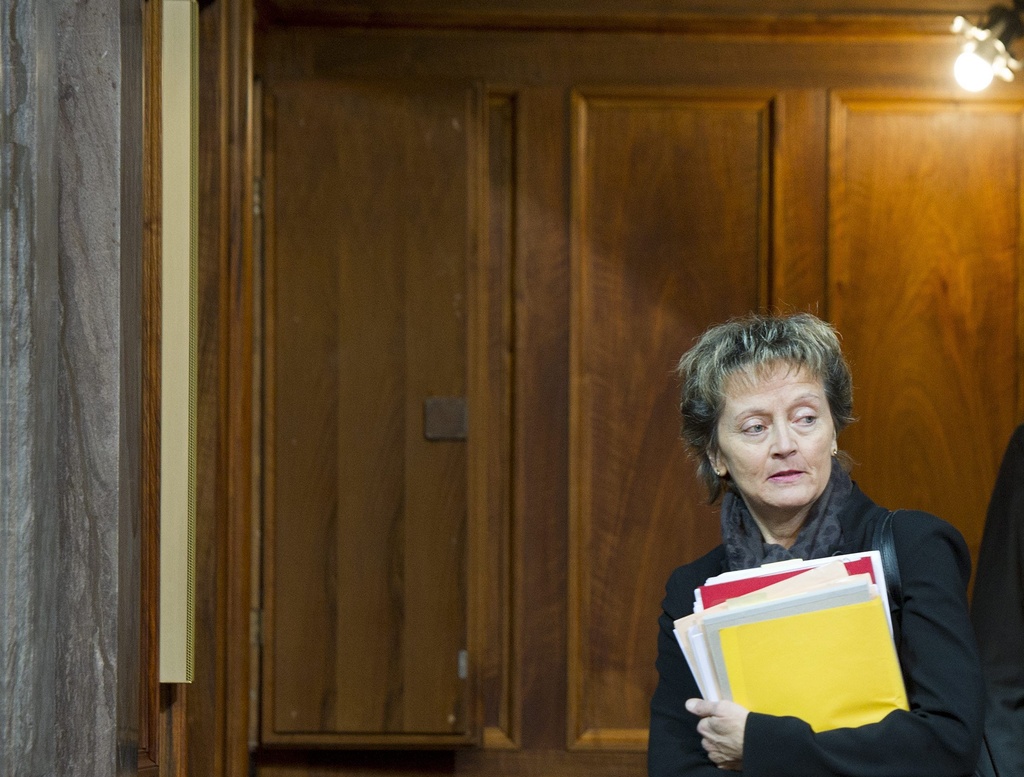
On the eve of cabinet elections, the ability of the rightwing Swiss People’s Party to win back a second cabinet seat is in serious doubt.
Four major parties have already declared their intention to back the re-election of Finance Minister Eveline Widmer-Schlumpf of the Conservative Democratic Party, meaning the People’s Party must look elsewhere.
It could therefore be forced to challenge one of the two seats held by the Radical Party – which is also towards the right of the political spectrum – if it is serious about obtaining the second seat.
Widmer-Schlumpf’s re-election is controversial not because she is seen as incompetent – far from it – but because her party, formed from a breakaway group of the People’s Party in 2008, won less than five and a half per cent of the vote in the October parliamentary elections.
In Switzerland’s traditional (and unique) “magic formula” system of government, where the four biggest parties share the seven cabinet positions between them, the Conservative Democratic Party is too small to justify giving it a seat.
But the line-up in the new parliament is very different from that in the outgoing one. As a new party, the Conservative Democratic showing was seen as a success, and another new centrist party, the Liberal Greens, gained similar support. And the centre-right Christian Democrats, the smallest of the four main parties in the previous parliament, and as such represented in the cabinet by a single member, now have the same number of seats as the Radicals.
At the same time, the People’s Party, although still by far the largest in the House of Representatives, lost eight seats.
This burgeoning of the centre has brought about new alliances, and given many members of the parliament the courage to support Widmer-Schlumpf – even if it puts one of the Radical Party’s two seats at risk.
“In the context where the Christian Democrats and the Conservative Democrats are committed to working more closely together in the future, these two groups can indeed expect to hold two seats in the government from the point of view of the conventional arithmetic,” declared Christian Levrat, chariman of the Social Democrats, justifying his party’s decision to support Widmer-Schlumpf.
Levrat said his party did not dispute the right of the People’s Party to hold two cabinet seats, but it “must decide” if it wanted to seek the second seat at the expense of Economics Minister Johann Schneider-Ammann of the Radical Party.
No more magic
Political scientist Georg Lutz told swissinfo.ch he expects the six incumbent members of the cabinet to be re-elected and the seat left vacant by the Social Democrat Micheline Calmy-Rey, who is stepping down, to be filled by one of her own party, the second biggest in parliament.
“It is a possibility that [People’s Party candidate] Hansjörg Walter will be elected in place of Schneider-Ammann, but there are too many “ifs” at this stage,” said Lutz.
He said the “magic formula” made sense when the three biggest parties all held similar proportions of the vote, but the rise of the centrist parties had changed the game.
“It’s getting a bit old to stick to this mathematical formula. If you think that it should be that, then write it into the constitution. The electoral system is that you need a majority of votes for each seat,” he added.
“What is different is that this narrow formula of power sharing has vanished because the majorities are different. But there is a majority for more stability. There is no chaos, it is the centre-left which has a majority of seats.”
The People’s Party argues that Switzerland’s political stability rests on the magic formula that in the past has ensured 75 per cent of the population are represented in the government.
The party’s position is that it will not challenge Schneider-Ammann unless the Radicals support Widmer-Schlumpf, breaking with the convention that gives two cabinet seats to each of the three biggest parties, and one to the next biggest.
A bad year
Although it remains Switzerland’s biggest political force, the People’s Party has taken something of a battering this year.
Having failed in its twin objectives to win 30 per cent of vote for the House of Representatives and to get the party’s strongmen elected to the Senate, its woes were compounded when serious allegations of wrongdoing emerged against its favoured cabinet candidate Bruno Zuppiger.
Zuppiger was hastily replaced last Thursday by Walter, the chairman of the Swiss Farmers Association, who a few days earlier had been elected speaker of the House of Representatives.
For Lutz, the scandal goes to the heart of the credibility of the party which “has not given the parliamentary groups many good reasons” to support a People’s Party candidate over Widmer-Schlumpf.
“The People’s Party don’t come across as being very serious in this whole cabinet election process.”
New face
What is sure about December 14 is that there will be at least one new face in the cabinet taking up the position left vacant by Foreign Minister Calmy-Rey.
Although the People’s Party has not ruled out challenging the Social Democrats for the seat, such a scenario is considered unlikely as the party would have little support from others in the parliament.
Alain Berset, who represents canton Fribourg in the Senate, is seen as the favourite over Pierre-Yves Maillard, a former member of the House of Representatives and a minister in the cantonal government of Vaud.
A former trade unionist, Maillard is regarded as being on the left of his party which could cost him crucial votes from the centre. In his eight years as a senator, Berset has impressed colleagues with his expertise in economic affairs and his approachable style.
The seven cabinet members are elected individually by both houses of parliament in joint assembly.
They are traditionally drawn from the four biggest parties: two each from the three largest, and one from the fourth.
Once elected, members remain in office during the lifetime of the parliament which chose them.
After parliamentary elections, which take place every four years, they submit themselves for re-election, unless they want to step down.
Until 2003 this was a formality. Members were always re-elected.
In 2003 the balance of power had shifted so much that the People’s Party, which until then had only one cabinet seat but now had the most members of parliament, was able to take a second seat from the Christian Democrats.
In 2007 the controversial People’s Party minister, Christoph Blocher, was not re-elected; parliament preferred his more moderate party colleague, Eveline Widmer-Schlumpf.
She was expelled from the party for accepting her election; this triggered the formation of the Conservative Democratic Party, largely by other disillusioned People’s Party members.
The People’s Party, although still the largest in parliament, currently has one minister.
House of Representatives
People’s Party: 54 seats (-8)
Social Democrats: 46 (+3)
Radical Party: 30 (-5)
Christian Democrats: 28 (-3)
Green Party: 15 (-5)
Liberal Greens: 12 (+9)
Conservative Democrats: 9 (+9)
Senate
People’s Party: 5 seats (-2)
Social Democrats: 11 (+3)
Christian Democrats: 13 (-1)
Radical Party: 11 (-1)
Green Party: 2
Liberal Greens: 2
Conservative Democrats: 1
Independent: 1

In compliance with the JTI standards
More: SWI swissinfo.ch certified by the Journalism Trust Initiative
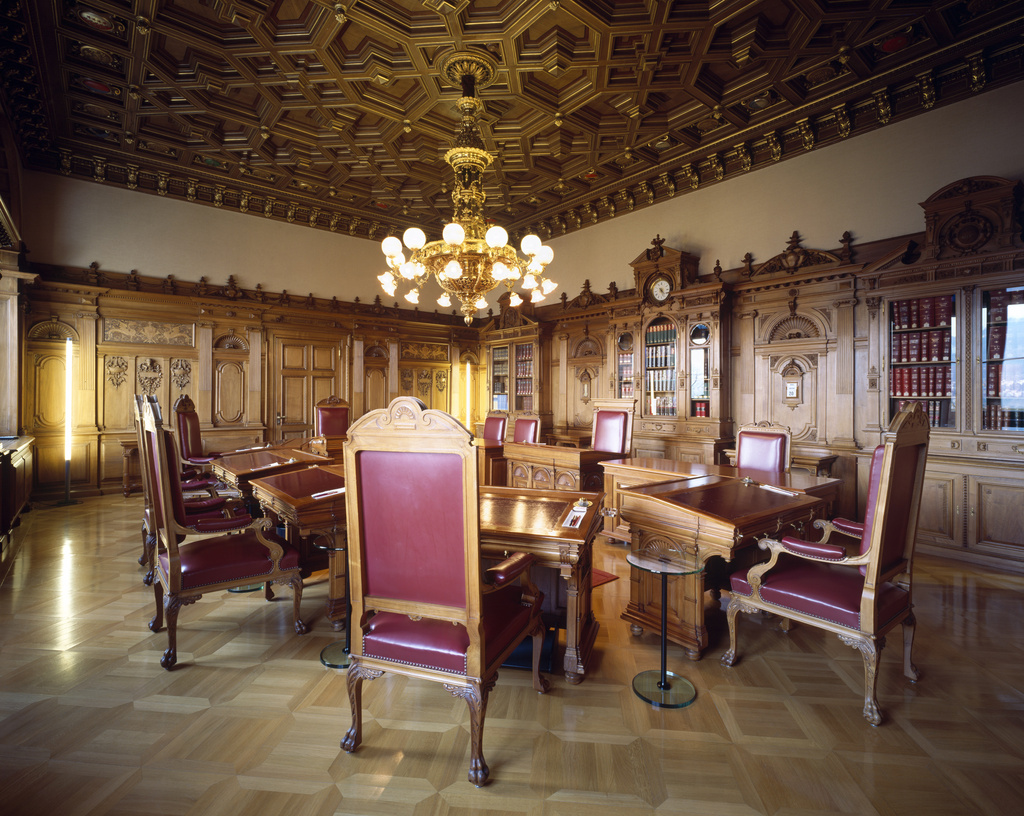
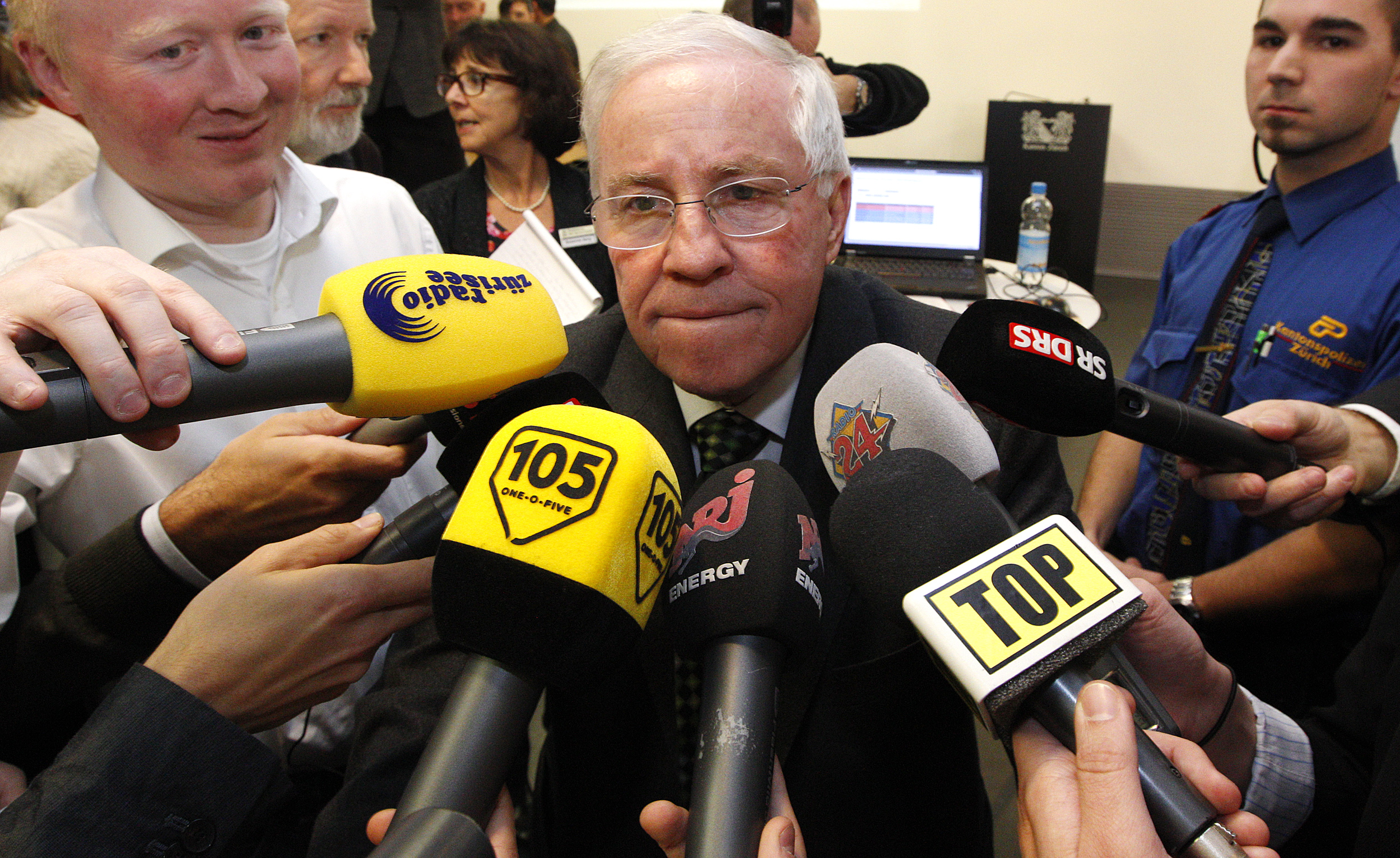

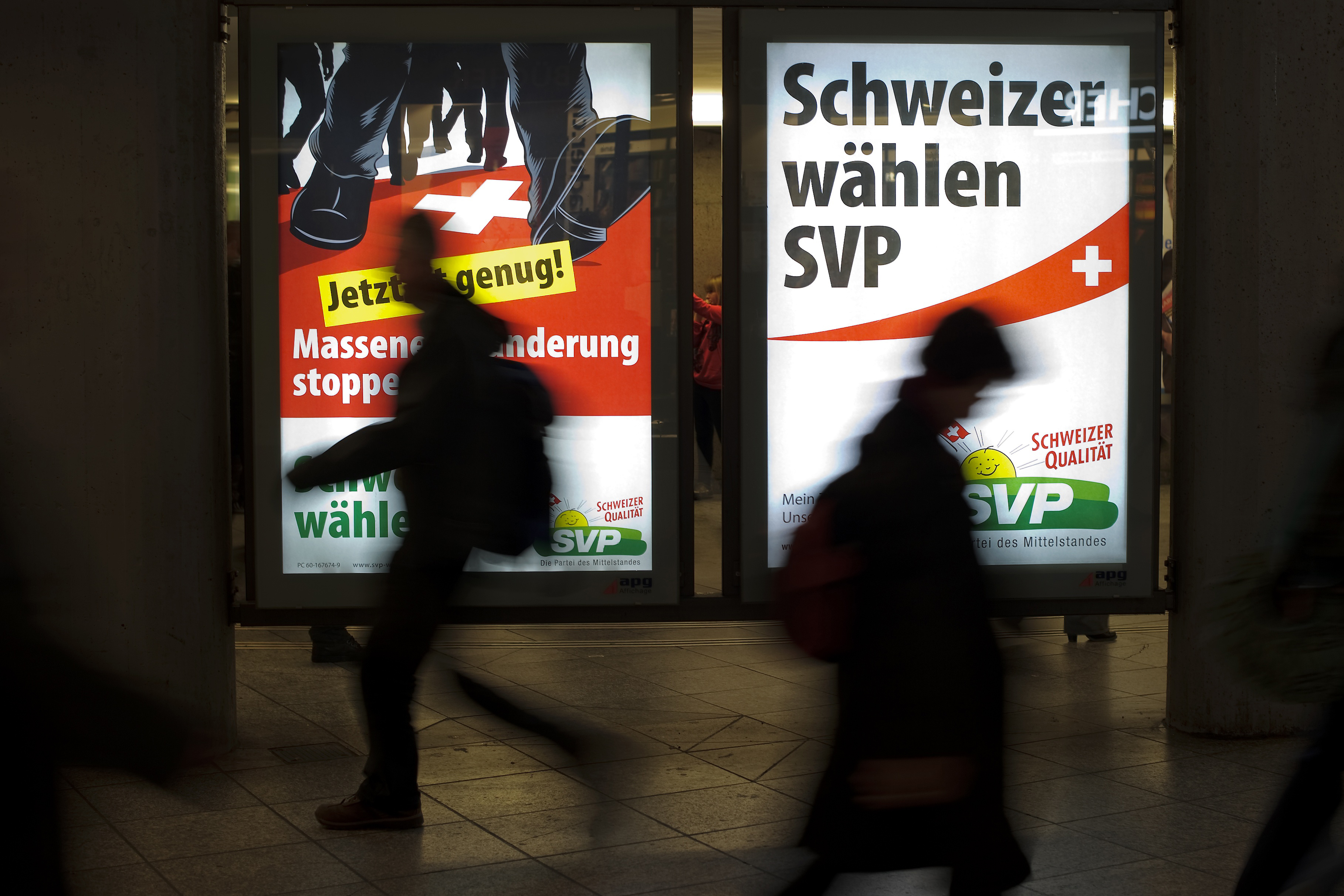
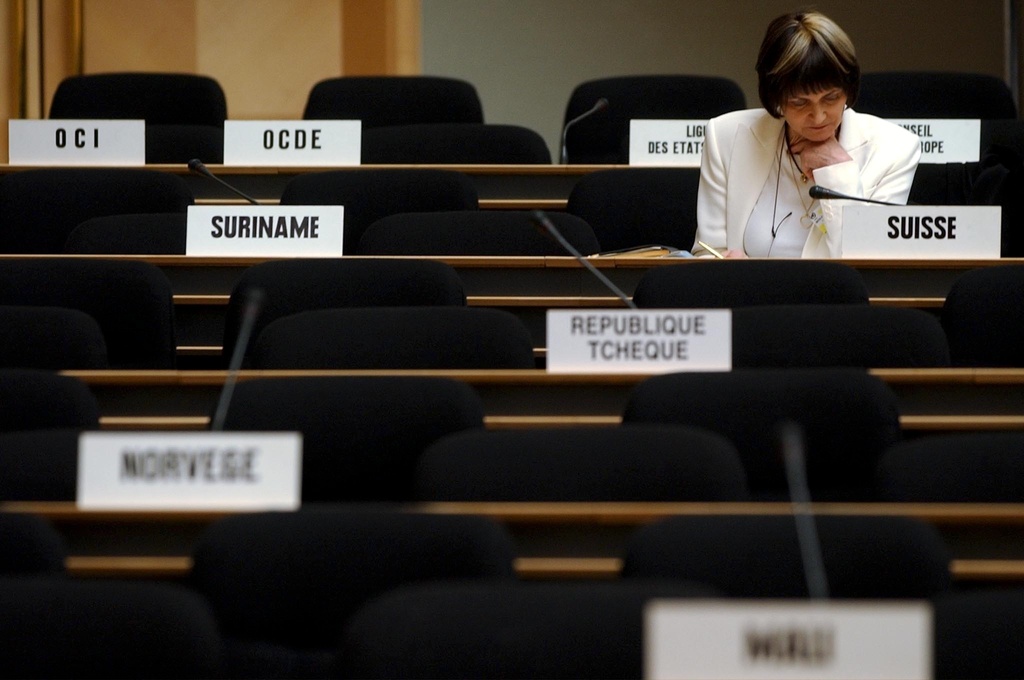
You can find an overview of ongoing debates with our journalists here. Please join us!
If you want to start a conversation about a topic raised in this article or want to report factual errors, email us at english@swissinfo.ch.